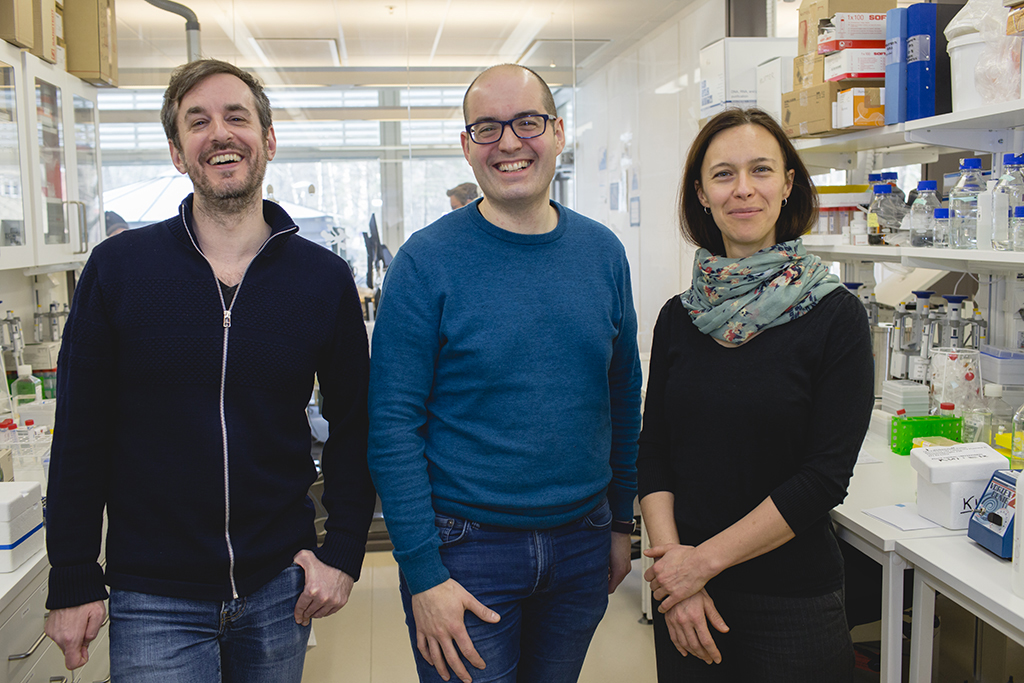SciLifeLab Fellows receive STINT funding
Marc Friedländer, Vicent Pelechano and Claudia Kutter receives STINT funding.
SciLifeLab Fellows Vicent Pelechano (Karolinska Institutet), Claudia Kutter (Karolinska Institutet) and Marc Friedländer (Stockholm University) have recently been granted funding for a research collaboration with a university in Shanghai, China.
In 1994, the Swedish Foundation for International Cooperation in Research and Higher Education (STINT) was formed by the Swedish government with the purpose of internationalizing Swedish higher education and research by investing in internationalization projects proposed by researchers, educators and leaders at Swedish universities.
The importance of collaboration with China, a country with the second highest research output in the world, continues to grow and for this reason STINT decided to strengthen its presence in the country from the spring of 2018. During 2019-2022, The Swedish Research Council (Vetenskapsrådet) is also contributing with another 5.9 million SEK to STINT’s Joint China-Sweden Mobility program.
SciLifeLab Fellows Vicent Pelechano, Claudia Kutter and Marc Friedländer have been granted STINT funding for a collaboration with Wei Wu and the Chinese Academy of Science Key Laboratory of Computational Biology in Shanghai, China.
“One of our objectives is to foster partnership between the Science for Life Laboratory and the Chinese Academy of Science Key Laboratory of Computational Biology in Shanghai. We aim to contribute to research and scientific education by improving computational biology training and increasing internationality. We will also organize joint scientific symposiums across both countries”, says Vicent Pelechano.
About the project: Transcriptome complexity in human disease
“The focus of this network will be to understand the molecular mechanism that allows cells to display differential transcriptional responses in health and disease. We will use genome-wide approaches to investigate the role of RNA not only as carriers of protein coding information (i.e., mRNAs), but also their role modulating chromatin organization and post-transcriptional regulation. By improving the training in genomics and computational biology, we aim to decrease the gap between data generation and biological interpretation. We will focus on the study of alternative transcript isoforms, long non-coding RNAs and small RNAs such as miRNAs or tRNAs in multiple disease models.”





